Sugars And Top 10 Foods Rich In Sugars That You have to Limit
Sugars like all other nutrients are very important for the organism. 1 gram of sugars contains 4 calories and so does 1 gram of proteins. There is no official norm of sugars consumption. However, it is recommended to eat at least 50 grams a day. Otherwise a person may suffer from ketosis. Ketosis is a blood condition that develops when the organism uses only fat deposits to produce energy. When a person consumes a sufficient amount of sugars, they are transformed into glycogen or glucose – substances that are deposited in muscles and liver. If the organism needs more energy, fats are reversely transformed into glucose.
What are the principal functions sugars have to fulfill in the organism? What for are they important and are they really important? First of all, sugars help the organism to deposit proteins while fats cannot be assimilated without sugars. Moreover, they regulate the nervous processes and are the principal source of energy for the brain.
Symptoms of Sugars Deficiency
Chronic deficiency of sugars results in depletion of glycogen reserves in the liver and accumulation of fats in its cells. This process may cause fatty degeneration of the liver as well as impairment of proteins and fats metabolism.
The symptoms of sugars deficiency are as follows: drowsiness, weakness, headaches, dizziness, nausea, hunger, tremor, and sweating. If the condition worsens, the person may suffer from apathy and depression which signal the beginning of proteins destruction process in the organism. These symptoms may be ended by consuming some sugar.
Symptoms of Excessive Level of Sugars
Excessive level of sugars may result in obesity. Disproportionate amount of sugars in food causes rapid increase of glucose level in blood. This glucose must be neutralized by the organism with the help of insulin which transforms it into fats. Regular overconsumption of sugars and other carbohydrates that are easily assimilated by the organism promotes development of occult diabetes mellitus. This happens because the pancreatic gland becomes exhausted and cannot produce insulin necessary for glucose assimilation.
The symptoms of the elevated level of sugars in the organism are: hyperactivity, trembling of the body, lack of concentration, impairment of the nervous system and the pancreatic gland, increased level of insulin in blood that can result in hypertension and other cardiovascular diseases.
Foods Highest in Sugars that You Should Avoid
1. Sugars, Sweeteners and Syrups
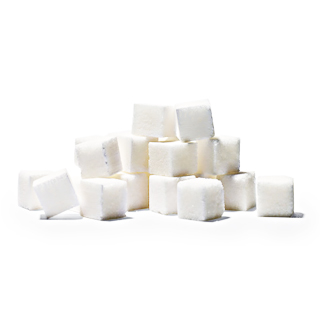 Types of Sugars, Sweeteners, Syrups Rich in Sugars (100g):
Types of Sugars, Sweeteners, Syrups Rich in Sugars (100g):
| Sugars, Granulated | |
| 100 g | 1 cup |
| Sugars: 99.8 g (111% DV) |
Sugars: 199.6 g (222% DV) |
| Syrups, Corn, Dark | |
| Sugars: 77.6 g (86% DV) |
Sugars: 254.5 g (283% DV) |
Refined sugar, honey or other sweeteners like maple syrup, brown sugar and white flour make up the list of products that contain carbohydrates deprived of nutrients. When you consume sugars, pure carbohydrates, that have no positive effect on the process of metabolism, get into the organism. Moreover, other substances are necessary for their assimilation. This means still more calories are consumed by the organism leading to weight gain. It cannot be said that desserts and sweets are harmful in general. But it is recommended for people to use natural sweeteners.
2. Soft Drinks and Drink Powders
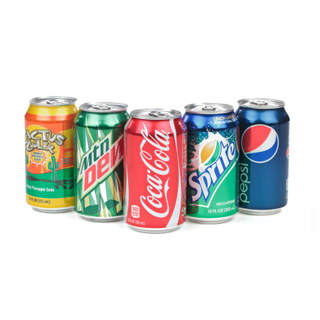 Types of Soft Drinks, Drink Powders Rich in Sugars (100g):
Types of Soft Drinks, Drink Powders Rich in Sugars (100g):
| Lemonade-flavor Drink, Powder | |
| 100 g | 1 serving (18 g) |
| Sugars: 97.2 g (108% DV) |
Sugars: 17.5 g (19% DV) |
It is well known that soft drinks and drink powders contain too many calories. Doctors state this fact and prove it with evidence: one bottle of soda contains on average six tea-spoons of sugar. A person who consumes two liters of soft drinks a day is three times more likely to become obese than a person who avoids drinking this kind of beverages. Moreover, it has been proved that people who drink lots of soft drinks and drink powders suffer from osteoporosis and are prone to bone fracture as they consume less milk and fermented dairy products. Hence, calcium is deficient in their organisms. These beverages also contain caffeine and phosphoric acid which are not beneficial to health.
3. Nougats and Candies
 Types of Nougats and Candies Rich in Sugars (100g):
Types of Nougats and Candies Rich in Sugars (100g):
| Candies, Nougat, With Almonds | |
| 100 g | 1 piece (14 g) |
| Sugars: 83.3 g (93% DV) |
Sugars: 11.7 g (13% DV) |
If nougats and candies are consumed regularly, the amount of group B vitamins is greatly decreased in the organism. This results in such symptoms as fatigue, tiredness, depression and gain in weight. According to the results of scientific investigations, sweet teeth live 15 years less than those people who avoid eating too many candies. Excessive amount of sugars from nougats and candies provoke the development of atherosclerosis and diabetes mellitus. Moreover, eating too many candies greatly increases the risk of developing dental caries.
4. Dried Fruit
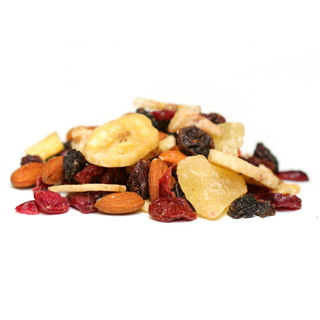
| Apples, Dried, Sulfured, Uncooked | |
| 100 g | 1 cup |
| Sugars: 57.2 g (64% DV) |
Sugars: 49.2 g (55% DV) |
| Apricots, Dried, Sulfured, Uncooked | |
| Sugars: 53.4 g (59% DV) |
Sugars: 69.5 g (77% DV) |
| Plums, Dried (prunes), Uncooked | |
| Sugars: 38.1 g (42% DV) |
Sugars: 66.3 g (74% DV) |
In the process of drying, fruit and berries lose water and the concentration of sugars is significantly increased. Hence, if a person eats one piece of dried apricot, s/he gets more calories than from a fresh apricot. The caloric value of dried fruit ranges from 230 to 300 kilocalories per 100 grams of product. That is why people who suffer from diabetes mellitus and those who are obese should consume dried fruit carefully.
5. Pies, Cakes and Cookies
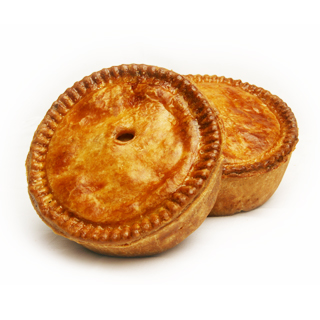 Types of Pies, Cakes, Cookies Rich in Sugars (100g):
Types of Pies, Cakes, Cookies Rich in Sugars (100g):
| Pie, Coconut Creme | |
| 100 g | 1 oz (28 g) |
| Sugars: 36.3 g (40% DV) |
Sugars: 10.3 g (11% DV) |
| Cake, Snack Cakes, Creme-filled, Sponge | |
| Sugars: 37.3 g (41% DV) |
Sugars: 10.6 g (12% DV) |
| Cookies, Coconut Macaroons | |
| Sugars: 70.7 g (79% DV) |
Sugars: 20 g (22% DV) |
Pies, cakes, cookies as well as other confectionary products are easily assimilated by the organism as they contain sucrose. They are of great energetic value but they do not have any nutrients beneficial for the organism. Consuming lots of pies, cakes and cookies is harmful to health, as fats and carbohydrates upset metabolism and lead to gain in weight, obesity development and diabetes mellitus onset. And various coloring agents and chemical additives contained in pies, cakes and cookies can provoke allergic reactions.
6. Preserves and Jams

| Jams And Preserves, Apricot | |
| 100 g | 1 tbsp (20 g) |
| Sugars: 43.4 g (48% DV) |
Sugars: 8.7 g (10% DV) |
Preserves and jams are canned products made of berries and fruit where sugar plays the role of food preserving additive. Almost all people like these delicacies. However, regardless of what jam one has chosen, it will contain a great amount of sugar which is the source of unhealthy carbohydrates. That is why it is not recommended to eat too much of these products.
7. Cereals
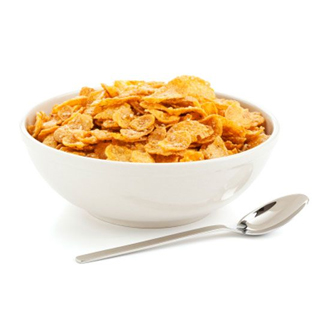 Types of Cereals Rich in Sugars (100g):
Types of Cereals Rich in Sugars (100g):
| Cereals Ready-to-eat, Frosted Oat Cereal With Marshmallows | |
| 100 g | 1 cup (30 g) |
| Sugars: 43.5 g (48% DV) |
Sugars: 13.1 g (15% DV) |
For many people cereals are associated with healthy nutrition because many manufacturers advertise them as food for slenderness as they contain no fats and lots of fibers. However, numerous trials have shown that the amount of fats and sugars in cereals is enormous and the amount of fibers is insignificant. Rice, corn and wheat cereals are easily assimilated as they contain simple carbohydrates which are a perfect source of energy for the brain. However, these carbohydrates may contribute to gain in weight. Cereals often contain flavoring agents and taste modifiers that are not good for eating.
8. Canned Fruit
 Types of Canned Fruit Rich in Sugars (100g):
Types of Canned Fruit Rich in Sugars (100g):
| Fruit Cocktail, Canned, Heavy Syrup, Drained | |
| 100 g | 1 cup (214 g) |
| Sugars: 17.1 g (19% DV) |
Sugars: 36.7 g (41% DV) |
Canned fruit contain lots of sugars, namely fructose. Various trials have shown that consumption of excessive amount of fructose is related to hypertension, high cholesterol level, obesity and metabolism impairment.
9. Instant Gravies and Sauces
 Types of Instant Gravies, Sauces Rich in Sugars (100g):
Types of Instant Gravies, Sauces Rich in Sugars (100g):
| Gravy, Instant Beef, Dry | |
| 100 g | 1 serving (7 g) |
| Sugars: 23.9 g (27% DV) |
Sugars: 1.6 g (2% DV) |
Gravies and sauces provide any dish with a particular flavor and taste. However, frequently these meals are too fatty and caloric. Frequent consumption of gravies and sauces can contribute to gain in weight, onset of chronic diseases of digestive system, complications of various illnesses, aggravation of allergies and problems with skin.
10. Ice Cream
 Types of Ice Cream Rich in Sugars (100g):
Types of Ice Cream Rich in Sugars (100g):
| Ice Cream Cones, Sugar, Rolled-type | |
| 100 g | 1 cone (10 g) |
| Sugars: 25.7 g (29% DV) |
Sugars: 2.6 g (3% DV) |
Ice cream is of great caloric value: 100 grams of ice cream contains nearly 500 calories as well as a great amount of sugars. That is why it should be consumed with caution especially by people prone to obesity or those who suffer from diabetes mellitus. Ice cream may be extremely harmful, if it contains animal fat which raises cholesterol level in blood.









